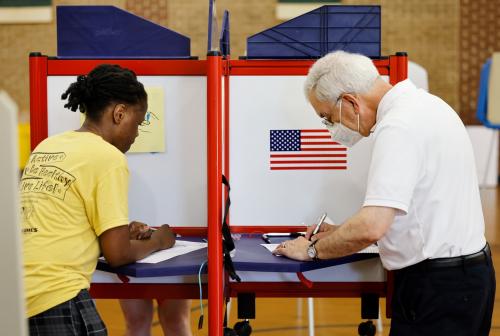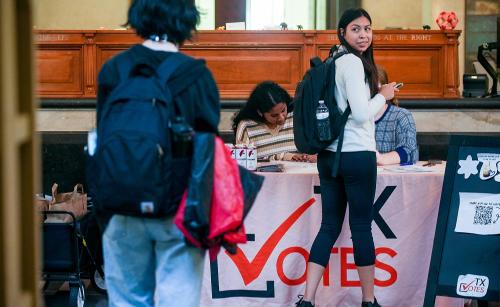President Buhari submits list of ministerial nominees to Nigerian Senate
On Wednesday, September 30, Nigerian President Muhammadu Buhari submitted a list of ministerial nominees to the senate. The Nigerian constitution mandates that all cabinet officials require senate confirmation before they assume office. The proposed appointments, however, only include an incomplete list of 21 ministerial nominees, and President Buhari has stated that the remaining candidates will be submitted to the senate in due course. The announcement of cabinet officials has been a four-month long process due to a rigorous vetting process instituted as part of President Buhari’s commitment to strengthening the integrity of the Nigerian government. The identity of President Buhari’s appointments will not be formally revealed until the senate resumes work next week. Despite the uncertainty around his cabinet, President Buhari made clear during a press conference in New York earlier this week that he will lead Nigeria’s powerful Ministry of Petroleum Resources. Assuming personal responsibility of the government’s role in Nigeria’s oil industry is also an effort on the part of President Buhari to ensure better management and “sanitize” the notoriously corrupt sector.
Moody’s downgrades its credit rating for Zambia citing poor economic outlook
The stock of Zambia’s largest private sector employer, Glencore, slumped in the market this week, dragging the already struggling Zambian currency into further crisis. The Zambian kwacha has declined 48 percent against the dollar this year, the most of the over 150 currencies tracked by Bloomberg. An electricity shortage and weak copper prices have put pressure on Zambia’s mining industry, prompting Glencore—a commodity trading and mining corporation— to suspend some mining operations until 2017, thus threatening output, jobs, and economic growth. Citing these concerns, this week Moody’s Investors Service cut its rating for Zambia by one step to B2, five levels below investment grade. The finance ministry urged investors to ignore the “unsolicited” credit downgrade by Moody’s, arguing that the country only has rating relationships with Fitch Ratings Ltd. and Standard & Poor’s. In addition, Zambian President Edgar Lungu urged investors not to panic, reassuring them that the government would not resort to foreign-exchange controls to arrest a slide in the kwacha.
Elections delayed as violence spikes in the CAR
In advance of the country’s national elections scheduled for October 18, the Central African Republic (CAR) experienced a steep resurgence in violence this week. On Saturday, September 26, a new wave of sectarian attacks between Muslim and Christian militias began when the body of a Muslim taxi driver was discovered in the capital Bangui. By Friday this week, the renewed violence had killed an estimated 37 people, wounded more than 100, and displaced at least 40,000 from the capital alone. Meanwhile, on Monday, 500 inmates escaped from a jail in Bangui, and on Tuesday, 60 more inmates broke out of a jail in Bouar. The interim President Catherine Samba-Panza charged that, given the highly organized and political nature of these events, these incidents seem to be part of an attempted coup and a plot to derail the upcoming elections.
In light of the ongoing violence, together with the logistical challenges of dealing with more than 360,000 displaced voters, on Thursday, the CAR’s foreign minister and U.N. peacekeeping chief, Herve Ladsous, announced that the elections will be postponed, although he did not specify a revised timeline.



Commentary
Africa in the News: Buhari submits cabinet nominees, Zambia’s credit rating takes hit, and Central African Republic elections delayed
October 2, 2015